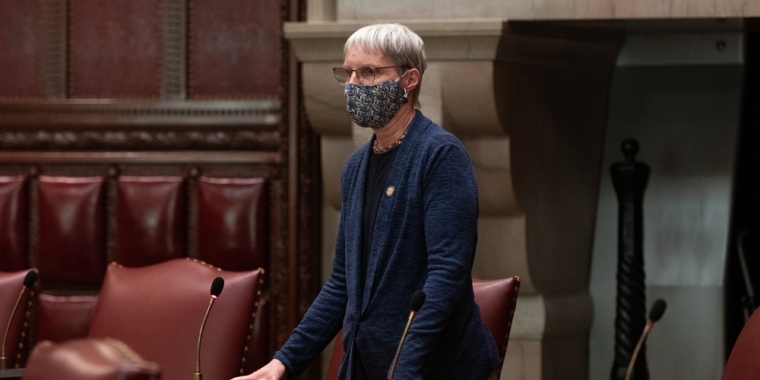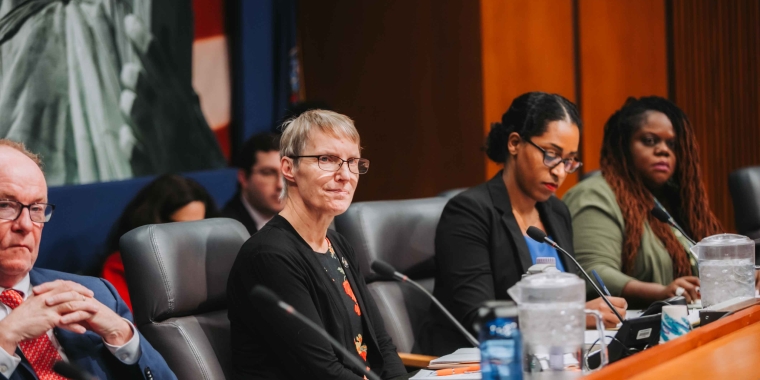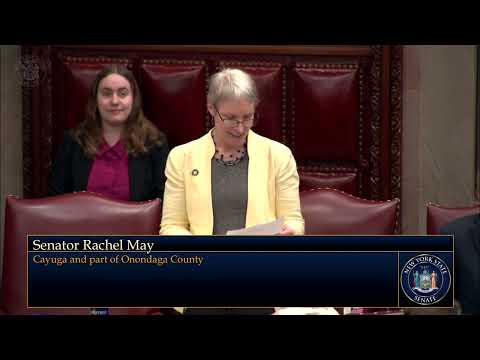Senator Rachel May Introduces Bill to Allow Personal and Compassionate Care Visitors at Nursing Homes
September 3, 2020
-
COMMITTEE:
- Aging

Syracuse, NY - Senator Rachel May (D-Onondaga, Madison, Oneida) is proud to introduce her bill (S.8958), which will allow personal care visitors and expand access for compassionate care visits at nursing homes and other adult care facilities.
The bill authorizes and directs the New York State Department of Health to develop rules, regulations, and guidelines authorizing and regulating visitation under certain circumstances while general visitation continues to be restricted by the pandemic. The bill will create exemptions for personal care visitation, in which a designated family member or other individual who has provided essential care and support with daily tasks such as eating, dressing or bathing can continue to do so. The compassionate care provision will allow for a visitation exemption not just for end-of-life circumstances, as currently interpreted by facilities, but also in cases where a resident suffers from significant changes in mental or psychosocial wellbeing as a result of isolation or other factors.
Currently, Department of Health guidelines require a nursing home or adult care facility to be COVID-19 free for 28 days before they can allow family members to visit.
“I hear from distraught family members, constituents, and advocates daily about the toll the visitation ban in nursing homes is taking on their loved ones,” said Senator May. “During the recent hearings, we heard over and over how families continue to be blocked from visiting due to the Department of Health’s stringent rules. For many residents it has become a life and death issue. My bill proposes reasonable and concrete steps we can take to provide a measure of relief for family members and re-establish critical care that their loved ones desperately need, while ensuring top safety standards.”
Under the bill, personal care and compassionate care visitors would be required to follow the same safety protocols as facility staff.
# # #
related legislation
Share this Article or Press Release
Newsroom
Go to Newsroom


